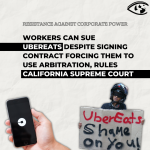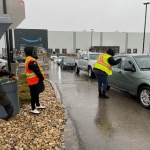US: Wal-Mart to Open Stores in Struggling Urban Neighborhoods
Wal-Mart Stores Inc., the world's largest retailer, said Tuesday it plans to build more than 50 stores in struggling communities over the next two years, as part of a goal to create between 15,000 and 25,000 jobs.
Wal-Mart said it will build the stores in neighborhoods with high crime or unemployment rates, on sites that are environmentally contaminated, or in vacant buildings or malls in need of revitalization.
The Bentonville, Ark., company said it expects many of the jobs will be in minority communities and could generate more than $100 million in state and local tax revenue. It already has over 1.3 million U.S. employees.
Wal-Mart already has plans to open between 335 and 370 new U.S. stores this year after 341 last year and has said it sees room for more than 1,500 additional stores in the United States in the coming years, on top of nearly 3,200 it already operates.
The retailer, which has stepped up efforts to burnish its reputation after mounting attacks, also will create 10 "Jobs and Opportunity Zones" around stores in troubled communities that will aim to bolster local businesses in those areas.
A new store to open on the West Side of Chicago will anchor the first of 10 such zones. The company said it will release the locations of the other zones in the coming months.
Wal-Mart shares fell 24 cents to $46.53 in morning trading on the New York Stock Exchange.
"Wal-Mart has never been afraid to invest in communities that are overlooked by other retailers," Chief Executive Lee Scott said in a news release.
"This is a commitment to reach beyond our stores, to further engage the community, and to offer an even greater economic boost to people and neighborhoods that need Wal-Mart the most," Scott added.
In the face of opposition to stores in some neighborhoods and mounting attacks from unions and other organized critics, Wal-Mart has gone on the offensive to portray itself as a good corporate citizen that saves working Americans money.
In February, it recruited former civil rights leader Andrew Young to head a group of community leaders that Wal-Mart funds to speak up on its behalf as Working Families for Wal-Mart. Young told The Associated Press at the time that one of the reasons he supported Wal-Mart was because it was more willing than other retailers to go into low-income city and rural communities.
Wal-Mart critics dismissed the new program as a publicity stunt.
"Rather than address the serious issues of unaffordable health care, poverty wages, crime, and sprawl, Wal-Mart's latest and greatest public relations stunt is to try to rebuild a fraction of the very communities and small business it has helped destroy," said Chris Kofinis, spokesman for WakeUpWalMart.com, a campaign group funded by the United Food and Commercial Workers union.
- 189 Retail & Mega-Stores



